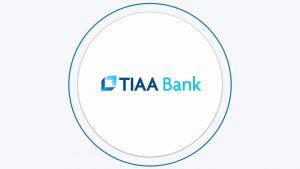Table Of Content
Vanguard and Fidelity are two major brokerage firms that offer CD options to their customers. With their reputations for providing high-quality investment options, both Vanguard and Fidelity offer attractive CD options for customers looking to diversify their investment portfolio.
In this article, we will compare the CD rates offered by Vanguard and Fidelity, as well as other important factors such as minimum deposit requirements, how their CDs work, and early withdrawal penalties.
Vanguard | Fidelity | |
|---|---|---|
CD Range | 3.75% – 4.25%
| 3.60% – 4.05%
|
Minimum Deposit | $1,000 | $1,000 |
Terms | 3 months – 10 years | 3 months – 5 years |
How Do CD Rates Compare?
When comparing Vanguard and Fidelity rates, we can see that not only Vanguard offers more terms compared to Fidelity, but in most cases, you can expect higher interest rates.
While the difference is not significant, Vanguard offers a slightly higher rate.
CD Term | Vanguard | Fidelity |
|---|---|---|
3 Months | 4.15%
| 4.05%
|
6 Months | 3.90%
| 3.85%
|
9 Months | 3.80%
| 3.80%
|
12 Months | 3.95%
| 3.75%
|
18 Months | 3.95% | 3.60%
|
24 Months | 4.00%
| 3.65%
|
36 Months | 3.80%
| 3.65%
|
48 Months | 3.75%
| 3.75%
|
60 Months | 4.00%
| 3.75%
|
84 Months | N/A | N/A |
120 Months | 4.25% | N/A |
Top Offers From Our Partners
![]()
Vanguard CD Vs Fidelity CD: How They Work?
Vanguard and Fidelity are brokerage firms that offer brokered certificates of deposit with varying terms and rates. Brokered CDs are known to be more competitive than those issued by other institutions, as brokerage firms have access to products from the entire market, including brokerage-only products and deals.
Vanguard offers CDs with terms ranging from one month to seven years or more, with fixed rates that are among the highest in the market for 24-month CDs. Fidelity, on the other hand, provides CDs with terms ranging from three months up to five years, with generally higher yields for longer-term CDs. Fidelity also offers excellent options for CD laddering.
All Fidelity and Vanguard CDs are FDIC insured, providing customers with up to $250,000 of protection per account owner, per institution.
Since they offer CDs from hundreds of banks, it may be possible to increase this coverage beyond the FDIC limits. Overall, customers should consider the varying terms, rates, and FDIC insurance coverage when comparing Vanguard and Fidelity's brokered CD options.
Is There A Difference Between Brokered vs Traditional CDs?
Brokered CDs are similar to traditional CDs in that they are a type of fixed-income investment where the investor agrees to lend money to the issuing institution for a specific period of time in exchange for a fixed rate of return. However, there are some key differences between brokered CDs and traditional CDs.
Firstly, brokered CDs are sold through a brokerage firm rather than directly through a bank or credit union. This means that investors have access to a wider range of CD options from various institutions, including ones that may not be available locally.
Secondly, brokered CDs may have higher interest rates than traditional CDs due to the increased competition between institutions to attract investors through the brokerage firm.
Thirdly, the terms and conditions of brokered CDs may differ from traditional CDs. For example, there are no early withdrawal penalties – but you may per other fees such as trade fees when you sell the CD.
Finally, while traditional CDs are typically held until maturity, brokered CDs may be sold on the secondary market before maturity. This provides investors with more flexibility but may also come with additional risks and fees.
About Fidelity
Founded in 1946, Fidelity has a long history of helping individuals and businesses work towards their financial goals. With a focus on innovation, Fidelity offers a range of investment solutions to help customers achieve their financial objectives.
In addition to brokered CDs, Fidelity provides access to a variety of investment products, including bonds, ETFs, and funds. This allows customers to incorporate brokered CDs into their overall investment strategy, alongside other investment options. With its extensive range of investment products and services, Fidelity is a popular choice for investors seeking comprehensive investment solutions.
About Vanguard
With a history dating back to the 1970s, Vanguard is a leader in low-cost investing. The company is dedicated to keeping investment costs low so that customers can maximize their returns. What sets Vanguard apart is that it is customer-owned, with customers who own Vanguard funds owning a part of the company. This unique structure allows Vanguard to focus on its customers' long-term success, rather than just producing quarterly results.
The company's structure is designed to align customers' goals with the company's goals, ensuring that its investment solutions are tailored to meet customers' needs.
In addition to brokered CDs and money market accounts, Vanguard offers a range of other investment products, including stocks, mutual funds, ETFs, bonds, and IRAs. With its focus on low-cost investing and customer ownership, Vanguard is a popular choice for investors looking for a trusted and reliable investment partner.
How We Compare CDs: Methodology
In our comprehensive certificate of deposit (CD) comparison, The Smart Investor team meticulously evaluated various CDs across four key categories to assist you in selecting the most suitable option for your savings goals.
- CD Rates: We thoroughly examined the interest rates offered by each CD, considering their competitiveness in the market. Higher rates typically translate to greater returns on your investment over the CD's term. Additionally, we scrutinized any special promotional rates or conditions that might affect the overall value of the CD.
- CD Features: This category focuses on the unique features and terms associated with each CD. We assessed factors such as minimum deposit requirements, early withdrawal penalties, and the availability of flexible terms. Additionally, we considered any additional perks like interest compounding frequency or options for automatic renewal.
- Customer Experience: A positive customer experience is crucial in banking, and we evaluated each institution's performance in this regard. We looked into aspects such as the ease of opening a CD, the quality of customer service, and the availability of support channels. Reviews from reputable sources such as Trustpilot and JD Power rankings were also considered to gauge overall user satisfaction.
- Bank Reputation: The reputation of the bank is a significant factor in the decision-making process. We examined the bank's financial stability, regulatory compliance, and public perception to assess its overall trustworthiness and reliability as a CD provider.
























